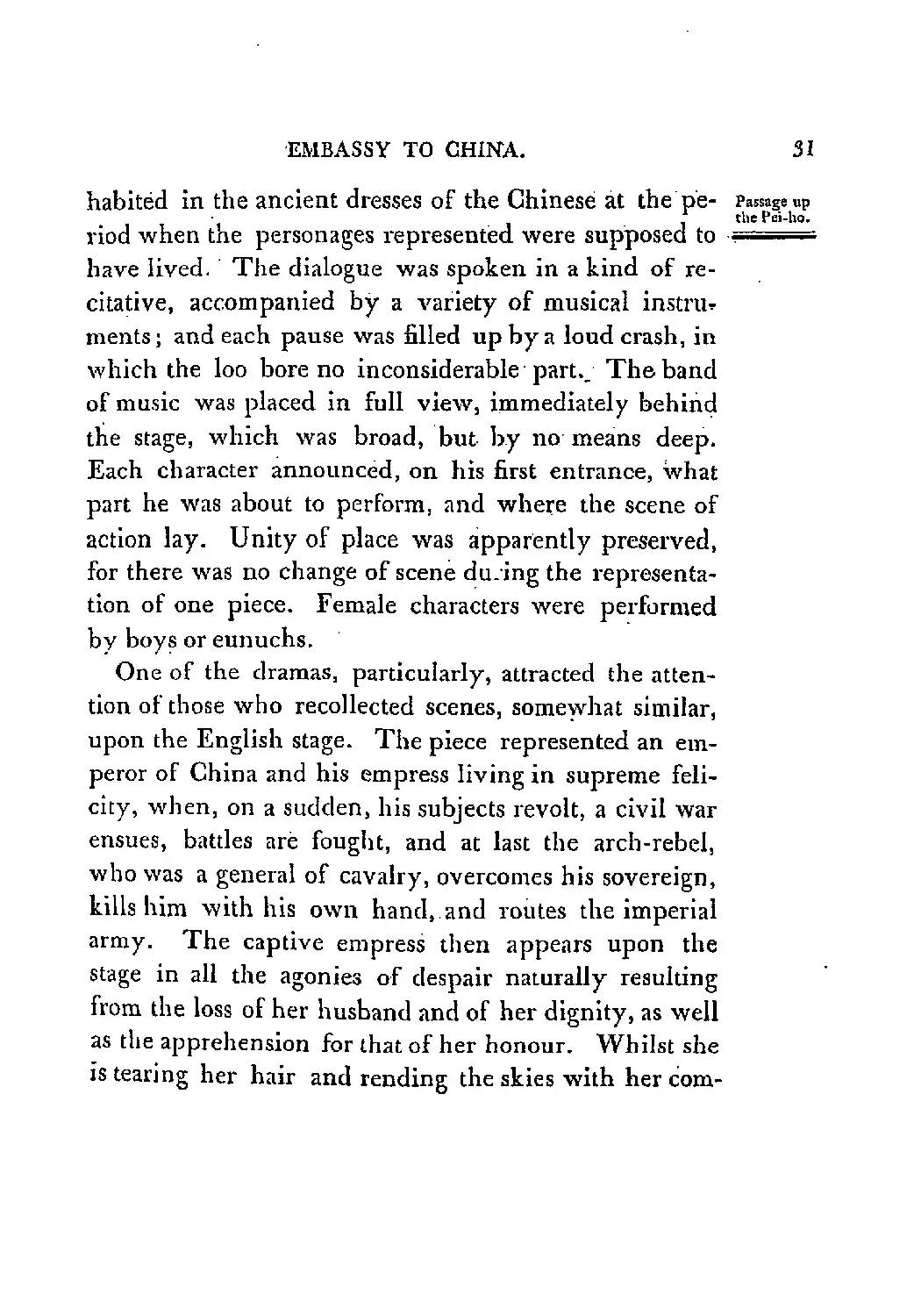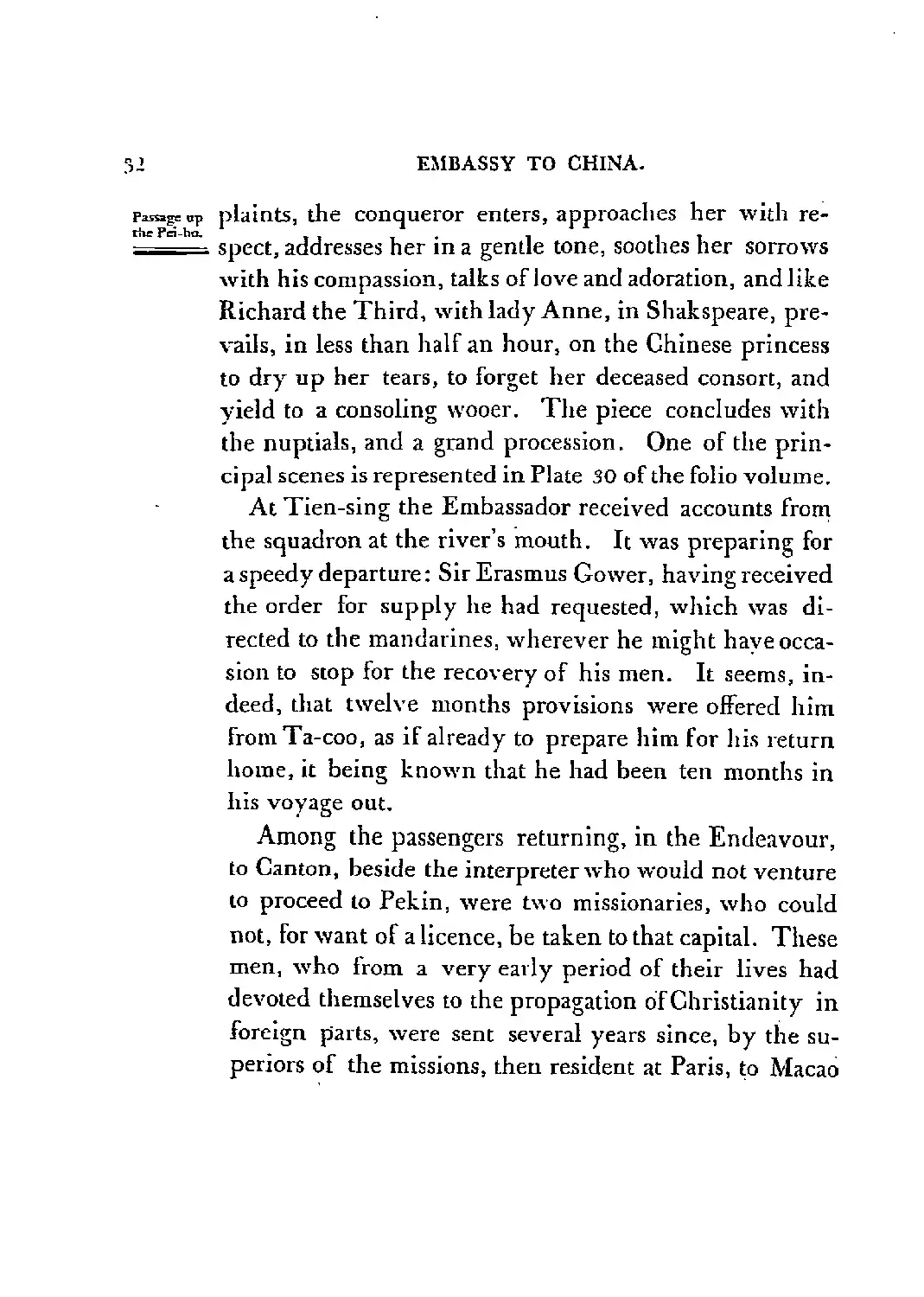An Authentic Account of an Embassy from the King of Great Britain. 2
- Info
- Pages
- Transcript
- Related
Soon after the Embassador, and the gentlemen of his suite, had returned
to their respective yachts, a magnificent repast, with wine, fruit, and
sweetmeats, was sent to them on the part of the Viceroy, as at Ta-coo,
together with presents of tea, silk, and muslins. Tho of no considerable
value, those presents were accompanied with such obliging expressions
and compliments, that they were received in the manner which was thought
would be most satisfactory to the donor. He likewise sent a plentiful
dinner and presents to the soldiers, musicians, artificers, and
servants, of the Embassy.
Among other instances of his attention to the Embassador, a temporary
theatre was erected opposite to his Excellency’s yacht. The outside was
adorned with a variety of brilliant and lively colours, by the proper
distribution of which, and sometimes by their contrast, it is the
particular object of an art among the Chinese to produce a gay and
pleasing effect. The inside of the theatre was managed, in regard to
decorations, with equal success; and the company of actors successively
exhibited, during the whole day, several different pantomimes and
historical dramas. The performers were habited in the ancient dresses of
the Chinese at the period when the personages represented were supposed
to have lived. The dialogue was spoken in a kind of recitative.
accompanied by a variety of musical instruments: and each pause was
filled up by a loud crash, in which the loo bore no inconsiderable part.
The band of music was placed in full view, immediately behind the stage,
which was broad, but by no means deep. Each character announced, on his
first entrance, what part he was about to perform, and where the scene
of action lay. Unity of place was apparently preserved, for there was no
change of scene during the representation of one piece. Female
characters were performed by boys or eunuchs.
One of the dramas, particularly, attracted the attention of those who
recollected scenes, somewhat similar, upon the English stage. The piece
represented an emperor of China and his empress living in supreme
felicity, when, on a sudden, his subjects revolt, a civil war ensues,
battles are fought, and at last the arch-rebel, who was a general of
cavalry, overcomes his sovereign, kills him with his own hand, and
routes the imperial army. The captive empress then appears upon the
stage in all the agonies of despair naturally resulting from the loss of
her husband and of her dignity, as well as the apprehension for that of
her honour. Whilst she is tearing her hair and rending the skies with
her complaints, the conqueror enters, approaches her with respect.
addresses her in a gentle tone, soothes her sorrows with his compassion,
talks of love and adoration, and like Richard the Third, with lady Anne,
in Shakspeare, prevails, in less than half an hour, on the Chinese
princess to dry up her tears, to forget her deceased consort, and yield
to a consoling wooer. The piece concludes with the nuptials, and a grand
procession. One of the principal scenes is represented in Plate 30 of
the folio volume.


